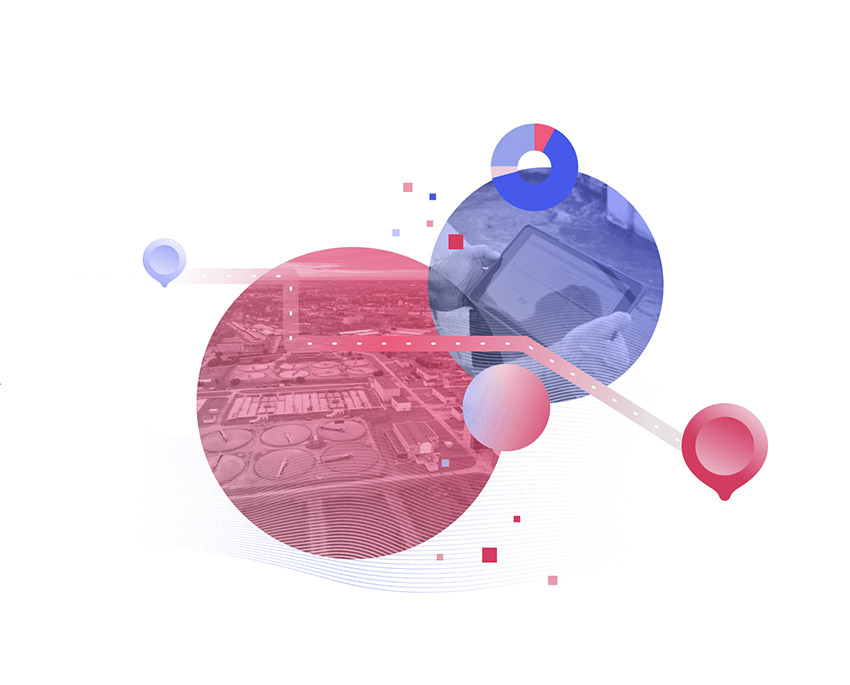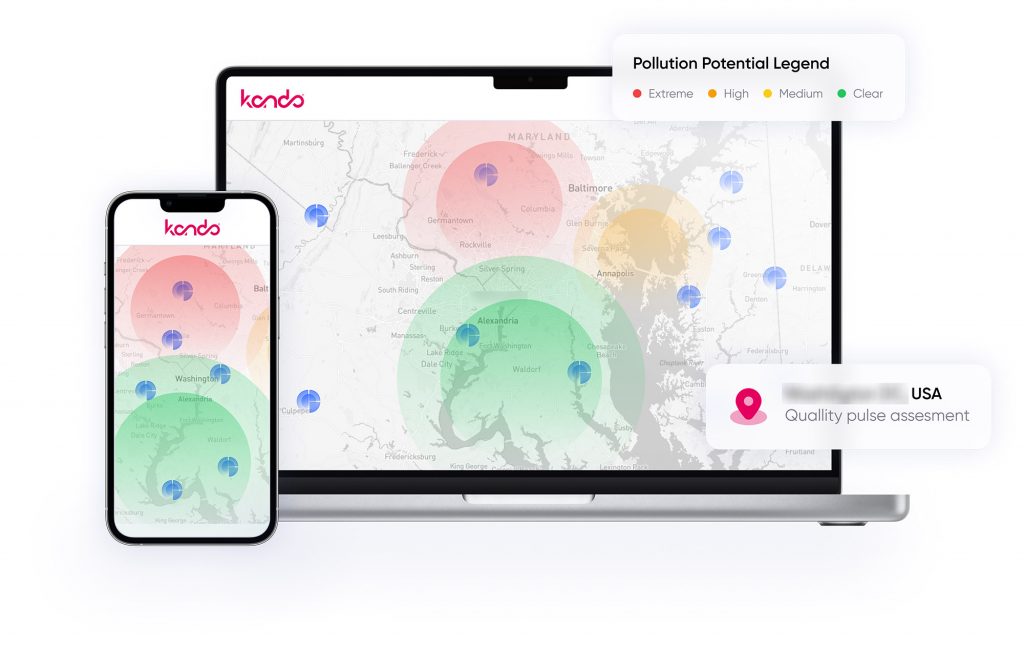Kando is a wastewater intelligence company supporting the water & public health sectors. Kando supports organizations in adapting a more data driven strategy to address environmental and public health challenges. With Kando’s wastewater intelligence platform, departments can access wastewater data in an organized, simplified and clear accessible way that at any time can be shared across departments and organizations to support different objectives and responsibilities.
The Kando solution provides the ability to detect events in the network, track the source and communicate the impact on the wastewater network and public health.
Easy Engineering: How was 2022 for your business, a short summary?
KANDO: 2022 was a landmark year for Kando and for the wastewater technology market as a whole. The year began with a first-of-its-kind partnership with Israel’s Ministry of Health aimed at using wastewater analysis to track the spread of COVID-19 through our sewage. This was the first time that a country had committed to using one single technology provider for this purpose in the majority of the country’s wastewater, which made a significant impact in the fight against Omicron.
For the rest of the year, Kando has been focused on expanding the applications of its product suite and broadening its operations into new markets. We recently announced our first UK partnership, with Scottish Water, while also hiring Dr. Andrew Engeli as Chief Strategy Officer. These steps highlighted the importance of the UK market to our overall business strategy. We look forward to celebrating new partnerships in the coming year as more and more governments and local authorities recognize the unique value of wastewater intelligence.
E.E: What products/services did you launch this year?
KANDO: This year saw Kando consolidate its product offering into two key components: Quality Pulse and Community Health Pulse. Quality Pulse provides cutting-edge wastewater analytics capabilities throughout a customer’s network (usually wastewater utilities), while Community Health Pulse is centered on WBE (Wastewater-Based Epidemiology), which supports public health authorities use wastewater data to understand people’s behavior and introduce preventative policies.

We realized that the market was ready for a solution which integrates these two distinct yet related offerings, and both have significant potential to build on their already-impressive capabilities and generate a wider range of relevant insights for our users and get the understanding on what is going on in our community based on wastewater data.
E.E: How did the market change, compared to previous years?
KANDO: The wastewater technology market has reached new levels of maturity, meaning that more and more organizations and governments are now on the lookout for a wide range of solutions that can help in getting a continuous flow of data about improving public health. Decision-makers are increasingly understanding that wastewater is the key to accessing vital community health data. There is now more awareness that a solution such as ours can solve pressing societal, environmental and medical challenges.
E.E: What are the new challenges in your field of activity?
KANDO: In the environmental domain, climate change and water scarcity make it essential for society to manage its wastewater more effectively. There is growing recognition that wastewater is in fact not ‘waste’ but is instead a valuable resource that must be used and harnessed. Population expansion is straining wastewater systems, as infrastructure that was built decades or even centuries ago has to rapidly modernize to deal with changing usage patterns. There is more emphasis on preventative public health and the importance of understanding people’s behavior in order to create relevant community health strategies amidst challenges around malnutrition, viral disease, drug use, and more. Fortunately, advanced AI and IoT solutions are now capable of generating insights based on a growing set of structured data, meaning that the modern technology suite is increasingly fit for purpose and capable to adapt to this plethora of issues.
E.E: How did you overcome these challenges in this more competitive environment?
KANDO: As a data solutions provider, Kando’s focus has always been on introducing the technologies that will allow us to access relevant data at the most granular level. Investing in best-in-class technologies and partnering with innovative, like-minded utilities and municipalities who share our aim of using the potential of technology to change people’s day-to-day behavior is at the heart of how we maintain our position of leadership in the market.
E.E: Tell us about product innovation and how will it impact the future?
KANDO: Product innovation is the key to our industry’s growth. New challenges are fast emerging and data-driven solutions which not only address existing challenges but also anticipate and thwart new ones will be necessary in order to remain on the front foot. For example, advances in AI allow us to identify repeat events and connect network outcomes to similar incidents worldwide. Just like the environment itself, the wastewater technology sector is truly an ecosystem, and the innovations we make have the potential to make waves across the globe.
E.E: How will product innovation help the customers?
KANDO: It’s a constant challenge for authorities to fully understand people’s habits and truly work out whether their policies are effective or not. Building out our offering to yield an ever-wider range of data-driven insights will undoubtedly help our customers make better decisions and justify them to the public more effectively.

E.E: What are the industry trends in the markets you are currently active?
KANDO: The water industry, in particular water companies, are facing growing challenges in order to serve their customers: shortages in water resources, non-revenue water and the need to deliver more for less along with growing consumption and climate change. With such pressures there is a need to improve efficiency in order to deliver essential services including safe and secure drinking water, storm-water management and wastewater management. In fact, these challenges and their increasing complexity necessitate a paradigm shift to the next generation of water systems beyond traditional water and sewage infrastructure. In terms of community health, the COVID-19 pandemic has brought the concept of WBE into the public domain in a significant way, with many communities and WWTPs trialing the application of Community Health monitoring for the first time. As the world moves towards a future living with endemic COVID, and with the threat of other pathogens emerging in the future, there is a clear need to maintain existing community health applications and develop them further
E.E: What do you think the trends will be next year?
KANDO: Moving into 2023 we will see increased investment into the wastewater sector with technology geared at water reuse, bolstering community health, and improving municipal infrastructure propelling the industry forward into a new era of innovative breakthroughs and discoveries. Better collaboration between policy makers and utilities and the development of ‘smart sewers’ will allow everyone to benefit from an updated system that leads to lower operating costs and healthier communities. With the market reaching a new level of maturity to adapt to market demand, wastewater technology will be used proactively, rather than reactively, not just for analyzing threats but also for promoting positive behavioral changes that make a tangible difference for the public and for the environment.
E.E: What is the outlook for 2023?
KANDO: Wastewater intelligence is no longer a ‘gold standard’; today, it is a must-have for any governmental authority looking to safeguard the needs and interests of the population. Wastewater analysis allows people to live their everyday lives without worrying about which health threats are around the corner. As more and more policymakers embrace this message, expect significant reductions in operating costs and a radical change in the quality of public infrastructure. 2023 is set to see the wastewater sector reach new and impressive heights.

